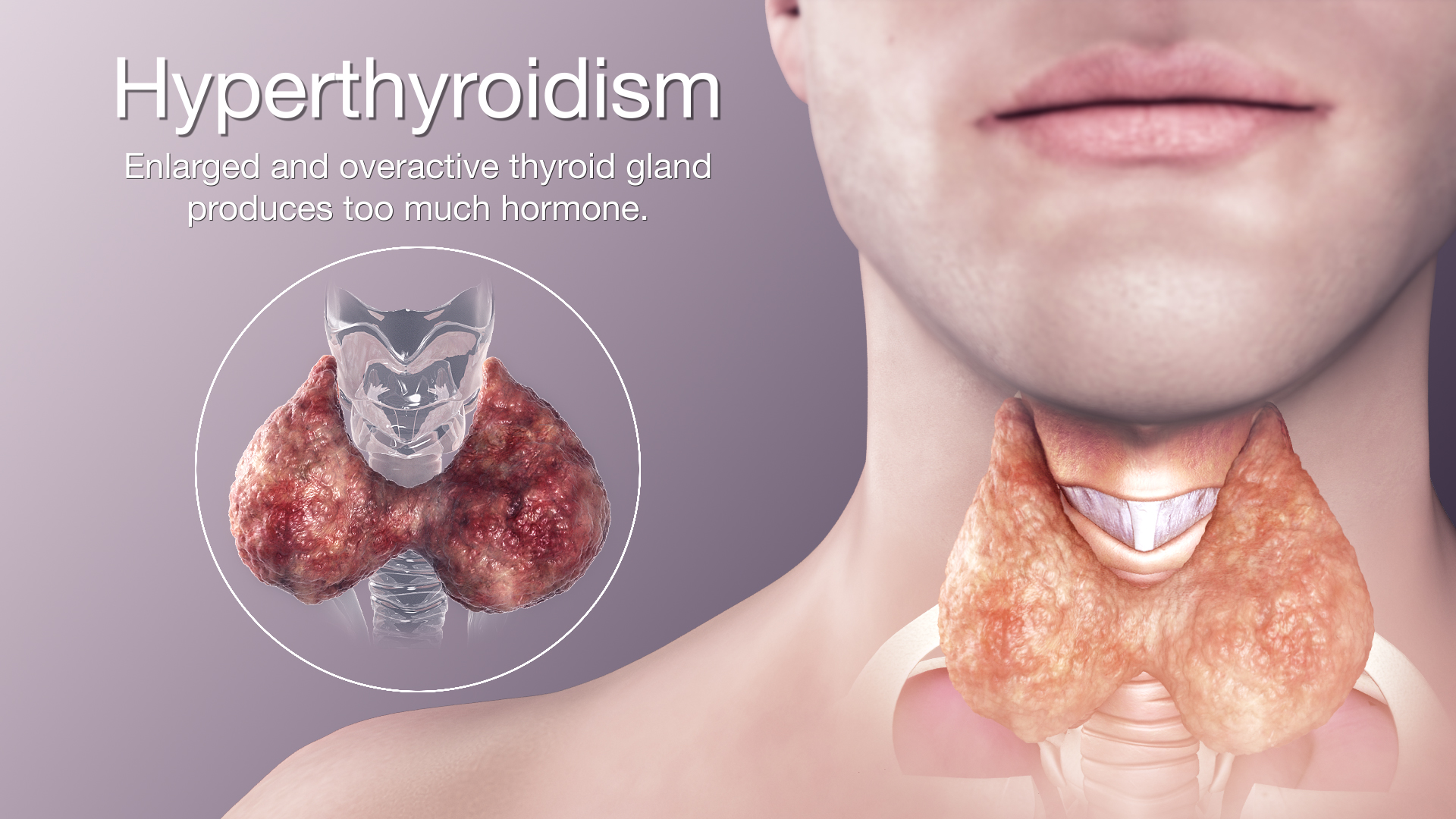When the thyroid gland makes more thyroid hormone, thyroxine, than the body needs, hyperthyroidism occurs.

The thyroid hormones regulate the body’s metabolism and affect nearly every organ in the body, including the rate at which the heart beats.
Causes
- Graves’ disease is the most general cause of hyperthyroidism. It is an autoimmune disease in which the immune system attacks the thyroid gland and causes it to produce too much thyroid hormone.
- Nodular thyroid disease is a condition in which lumps form in the thyroid gland and cause an overactive thyroid.
- Thyroiditis is the inflammation of the thyroid gland due to which the thyroid hormone stored in the gland is leaked into the bloodstream.
Symptoms
Symptoms of hyperthyroidism vary from person to person, but the common ones are, weight loss, irritability, rapid and irregular heartbeat, increased appetite, nervousness, increased sensitivity to heat, fatigue, difficulty in sleeping, increased appetite, sweating, mood swings and muscle weakness.
Treatment
Treatment of hyperthyroidism often depends on the cause and severity.
Radioiodine therapy commonly requires medicine to be taken orally and it helps to shrink the thyroid gland and reduces the production of hormone.
Anti thyroid medicines usually help in reducing the symptoms by preventing the gland from producing excess hormones.
Beta blockers are often administered as part of the treatment because even though they do not affect the hormone levels, they help in relieving the symptoms of hyperthyroidism.
Thyroidectomy or surgery may be used to remove some or most of the thyroid gland. Surgery, however, is the least used method of treatment.
It is very important to treat hyperthyroidism, because if left untreated, may give rise to complications such as heart problems, brittle bones and eye problems amongst potential others.
Disclaimer: The information in no way constitutes, or should be construed as medical advice. Nor is the above article an endorsement of any research findings discussed in the article an endorsement for any of the source publications.
Sources-
- https://www.webmd.com/a-to-z-guides/overactive-thyroid-hyperthyroidism
- https://www.medicalnewstoday.com/articles/9153.php
- https://www.niddk.nih.gov/health-information/endocrine-diseases/hyperthyroidism
- https://www.mayoclinic.org/diseases-conditions/hyperthyroidism/symptoms-causes/syc-20373659
An underactive thyroid gland that does not produce enough thyroid hormone is a medical condition called Hypothyroidism. The thyroid is a small, butterfly-shaped gland situated at the base of neck, and is responsible for synthesizing hormones that regulate metabolism. Lack of thyroid hormone production, hence, causes the body’s functions to slow down.
Read More..
The pituitary gland is oval in shape and small in size. It’s present behind the nose, closer to the underside of human brain. It is connected to the hypothalamus via a stalk-like structure. The hypothalamus regulates the release of hormones from the pituitary gland.
Read More..
Hypothyroidism is a condition that occurs when our thyroid gland does not produce enough thyroid hormone. It is a disorder of the endocrine system. The thyroid gland is responsible for releasing hormones that regulate many body functions and it plays a very important role in the body’s growth, development and metabolism. Insufficient hormones cause our body functions to go out of balance. Women are more likely to develop hypothyroidism than men. It usually affects people above the age of 60. It is also known as underactive thyroid.
Read More..









